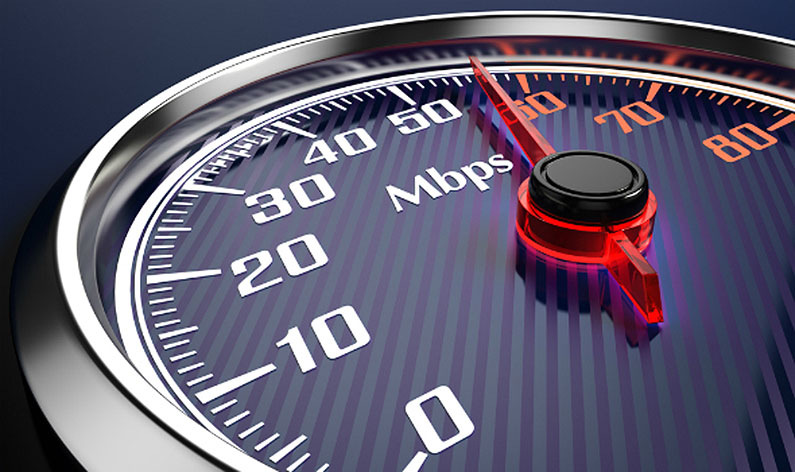Broadband providers not up to speed during pandemic, reveals Which?
Some of the UK’s biggest broadband providers have let down their customers on connection reliability, internet speeds and value for money during the pandemic, according to Which?’s annual customer satisfaction survey.
During the Covid-19 pandemic, broadband has proved more important than ever – with millions of people relying on their internet to work from home, educate their children and keep in touch with loved ones.
According to Which?’s annual survey, seven in 10 people (71%) said they had used their connection more since the outbreak of the pandemic, with nearly two-thirds of those saying their use has increased substantially.
However, the volume of issues consumers have experienced with their broadband provider has also increased over the past year. Seven in 10 (69%) respondents said they had experienced an issue with their connection in the past 12 months – a substantial increase on last year’s survey.
Very low speeds (59%) and frequent dropouts (53%) were the most common problems experienced more often during the pandemic, compared to before. Almost half of respondents (48%) reported they had been left without a connection for more than a day and around four in 10 (44%) said they had been left without internet for more than an hour.
The findings reflect the likelihood that an increased reliance on broadband over the past year means customers are more likely to notice – and be frustrated by – any connection issues.
Although the Big Four broadband providers – BT, Sky, TalkTalk and Virgin Media – supply nine in ten households, Which?’s survey found they have left many customers disappointed.
Virgin Media has its own cable network in parts of the UK, which allows it to offer some of the fastest broadband speeds. Yet its customers gave it poor ratings for connection reliability – with one in three Virgin Media customers saying they had experienced a connection outage lasting at least an hour in the past year and almost a quarter saying their connection was slow to upload or download.
Virgin Media customers were also less likely to be satisfied with their customer service, ease of setup and value for money. Overall, Virgin received a low overall customer score of just 53 per cent – leaving it second from bottom in Which’s satisfaction rankings.
TalkTalk and Sky fared similarly, with customer scores of 54 per cent. While TalkTalk scored fairly well for value for money, it had the highest proportion of customers who would not recommend their provider to others.
Sky rated poorly for value for money – perhaps because a quarter of Sky customers experienced frequent dropouts despite paying more for their service than the average broadband customer. To add insult to injury, more than a quarter of Sky customers said the price of their deal had increased in the past year.
Sky also received low scores for connection speed, connection reliability and ease of setup and dropped three places in this year’s survey. The Which survey also revealed Sky to be the joint-worst provider – along with Utility Warehouse – for very slow speeds, which affected three in 10 (29%) customers.
BT earned the highest score of the Big Four providers (57%) but still only managed eighth place overall – just one place up from its ranking last year. It scored middling ratings across the board apart from value for money, which scored poorly.
Only John Lewis scored lower than the Big Four (47%), with low ratings for connection speed, connection reliability and ease of setup.
At the other end of the scale, Zen Internet achieved the highest customer score of 70 per cent and was the highest-ranked broadband provider for the second year in a row (scoring 84 per cent in 2020). Zen achieved high scores across the board and despite not offering the cheapest tariffs, 85 per cent said they would recommend it to a friend.
Zen narrowly missed out on Which? Recommended Provider (WRP) status as it has not yet signed up to Ofcom’s codes of practice on broadband speeds.
The survey also found customers who upgraded to fibre broadband often felt the benefits. Of the nearly 3,000 respondents who had fibre broadband, 63 per cent noticed faster speeds after switching and 45 per cent noticed fewer connection dropouts.
However, although superfast fibre connections are available to 96 per cent of the country, many are yet to take them up. Around a quarter of the respondents told Which? they still had standard broadband.
Natalie Hitchins, Which? Head of Home Products and Services, said:
“With so many people at home relying on their internet during the pandemic, a good connection has never been more important – but we found some of the UK’s biggest suppliers are not up to speed.
“Broadband providers must up their game and meet the challenge of providing fast, reliable connections and good customer service for millions of customers whose needs and expectations have risen over the last year.
“The industry and government must also work together to ensure more people have the chance to switch to faster and more reliable gigabit-capable broadband services in the years to come – or risk undermining the UK’s goal of becoming a world leader in connectivity.”
Discover more from Tech Digest
Subscribe to get the latest posts sent to your email.



2 comments
Comments are closed.